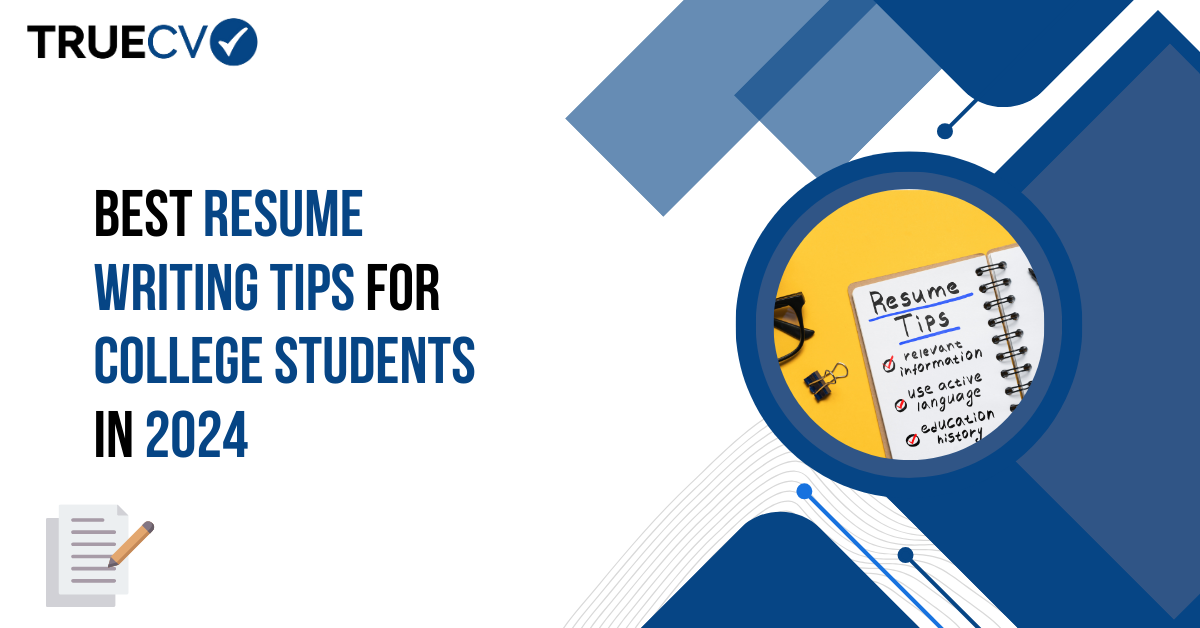
Best Resume Writing Tips for College Students in 2024
Crafting a standout resume is crucial for college students entering the job market. A well-written resume can be the key to securing internships, part-time jobs, and even your first full-time position. Here are the best resume writing tips for college students in 2024 to help you create a compelling resume that showcases your skills, experiences, and potential.
1. Start with a Strong Objective or Summary
A resume objective or summary gives employers a quick overview of your goals and what you bring to the table. For college students, this section should highlight your educational background, key skills, and career aspirations. Keep it concise and focused, and tailor it to the specific job you’re applying for.
2. Emphasize Your Education
As a college student, your education is one of your strongest assets. List your current school, degree program, and expected graduation date. If you have a high GPA, consider including it. Mention relevant coursework, projects, or academic achievements that demonstrate your expertise and interest in the field.
3. Highlight Relevant Experience
Include any work experience that relates to the job you’re applying for. This can include internships, part-time jobs, volunteer work, or campus involvement. Focus on responsibilities and achievements that demonstrate transferable skills such as teamwork, leadership, communication, and problem-solving.
4. Showcase Your Skills
Identify the skills that are most relevant to the job and highlight them on your resume. This can include technical skills, software proficiency, language abilities, and soft skills like communication, time management, and adaptability. Use a mix of hard and soft skills to show your versatility.
5. Use Action Verbs and Quantify Achievements
When describing your experience and accomplishments, use action verbs to make your resume more dynamic. Words like "led," "developed," "implemented," and "achieved" convey initiative and impact. Whenever possible, quantify your achievements with numbers or percentages to provide concrete evidence of your contributions.
6. Tailor Your Resume for Each Job
Customize your resume for each job application by emphasizing the most relevant experiences and skills. Use keywords from the job description to help your resume get past applicant tracking systems (ATS) and catch the eye of hiring managers. A tailored resume shows that you’ve put effort into understanding the role and how you can contribute.
7. Include Extracurricular Activities and Leadership Roles
Extracurricular activities and leadership roles can demonstrate valuable skills and qualities to potential employers. Highlight positions in student organizations, clubs, sports teams, or other activities where you took on responsibilities, led projects, or worked as part of a team. These experiences can be as important as formal work experience.
8. Keep It Concise and Well-Organized
A resume should be concise, typically one page for college students. Use clear headings, bullet points, and consistent formatting to make your resume easy to read. Avoid large blocks of text and ensure there is plenty of white space to keep the document visually appealing. Use a professional font and keep the design simple and clean.
9. Proofread and Edit
Carefully proofread your resume to eliminate any spelling or grammatical errors. A resume with mistakes can create a negative impression and suggest a lack of attention to detail. Ask a friend, mentor, or career advisor to review your resume and provide feedback. Multiple rounds of editing can help ensure your resume is polished and professional.
10. Include Contact Information and Online Presence
Make sure your contact information is up to date and easy to find. Include your full name, phone number, email address, and LinkedIn profile. If you have a professional online presence, such as a personal website or portfolio, include the link. Ensure your email address and social media profiles are professional.
11. Use a Professional Format
Choose a resume format that best showcases your strengths. The most common formats are chronological, functional, and combination. A chronological format is ideal if you have a consistent work history, while a functional format is better for highlighting skills and experiences over job titles. A combination format allows you to showcase both.
12. Include Keywords and Phrases
Many employers use applicant tracking systems (ATS) to screen resumes. To increase the chances of your resume being seen by a human, include keywords and phrases from the job description. This can help your resume pass the initial screening and demonstrate that you have the qualifications they are looking for.
13. Highlight Internships and Projects
Internships and academic projects can be just as valuable as paid work experience. Describe your roles, responsibilities, and what you achieved in these positions. Focus on how these experiences have prepared you for the job you are applying for and what skills you developed.
14. Prioritize Readability
Your resume should be easy to read at a glance. Use bullet points to break up text, keep sentences concise, and use bold or italics to highlight key information. A well-organized resume allows hiring managers to quickly find the information they need and understand your qualifications.
15. Be Honest and Authentic
Honesty is crucial when writing your resume. Do not exaggerate your skills or experiences. Employers value integrity and are more likely to appreciate an honest representation of your abilities. Authenticity also helps you find a job that truly fits your skills and career goals.
Conclusion
Writing a resume as a college student may seem daunting, but by following these tips, you can create a document that effectively showcases your strengths and potential. Remember to focus on your education, highlight relevant experiences, and tailor your resume for each job application. With a well-crafted resume, you'll be better positioned to land the opportunities you seek and embark on a successful career journey.





